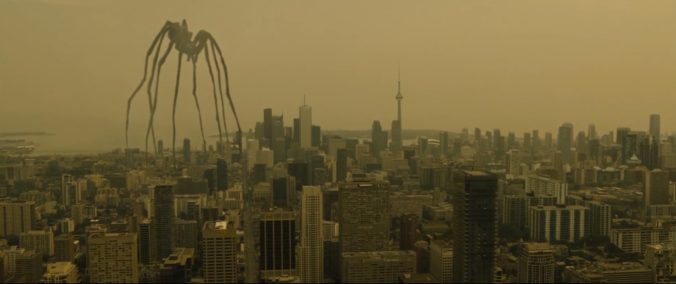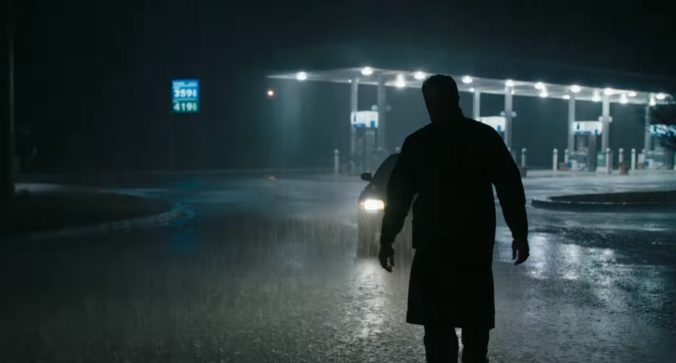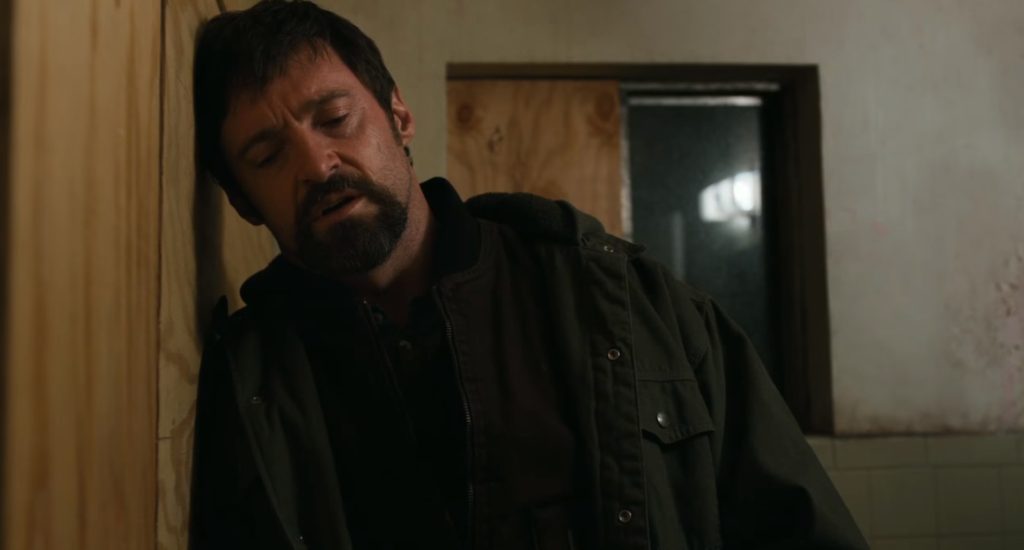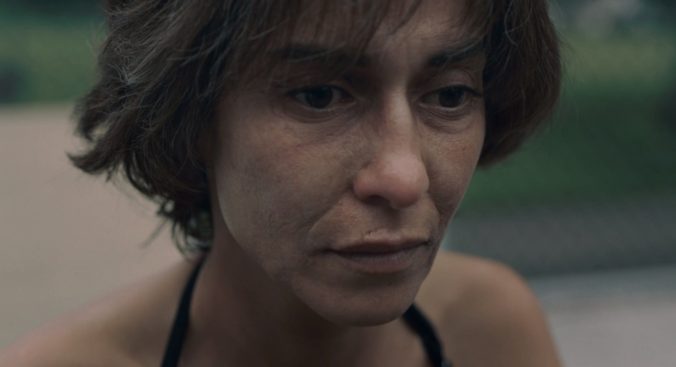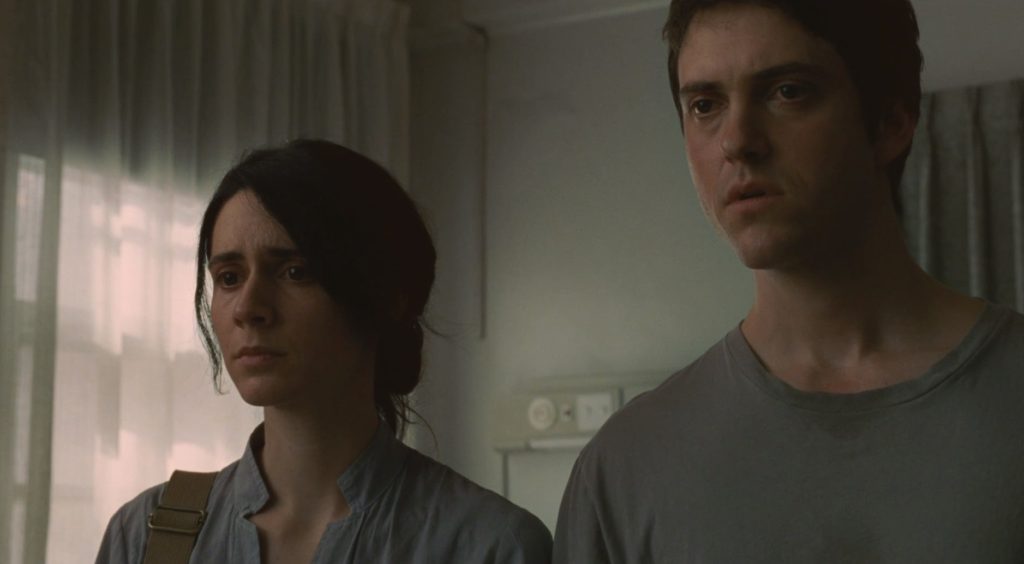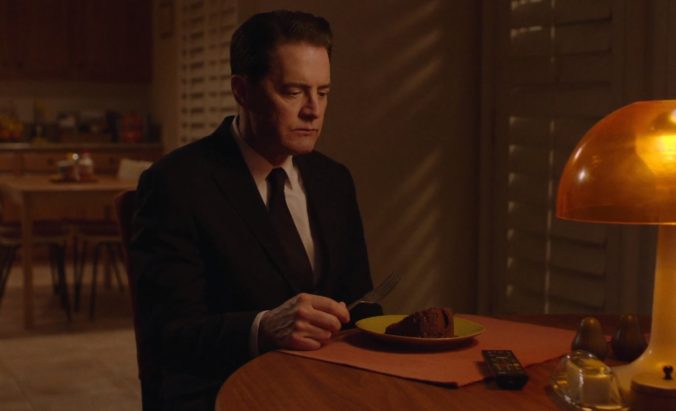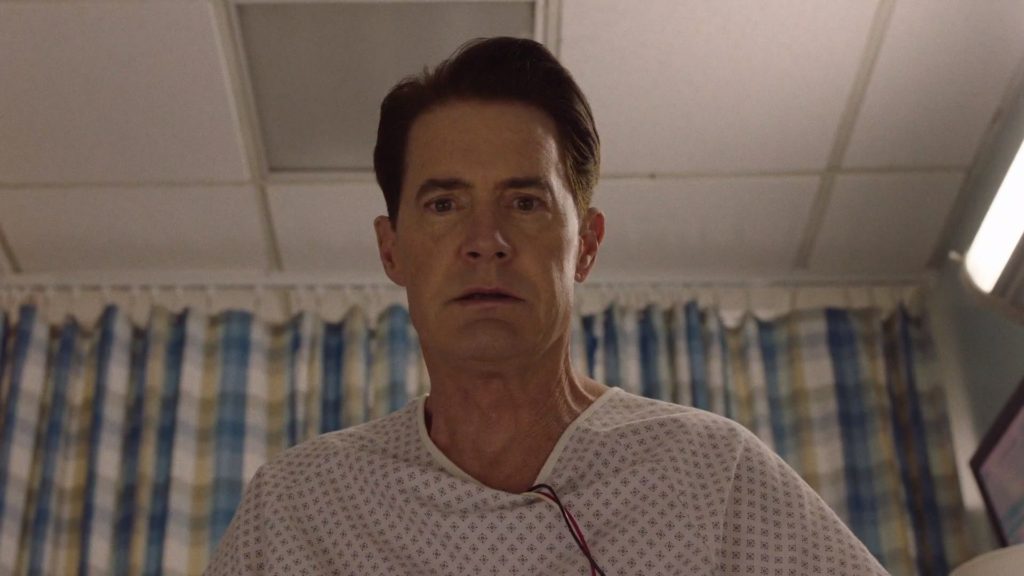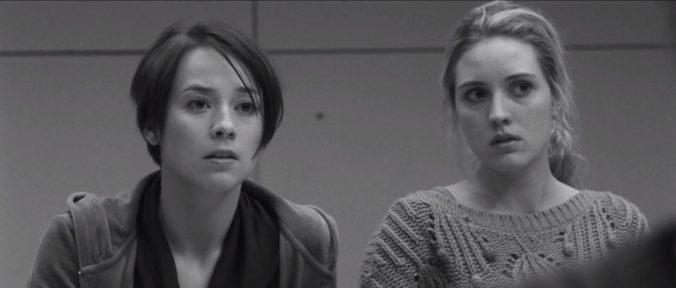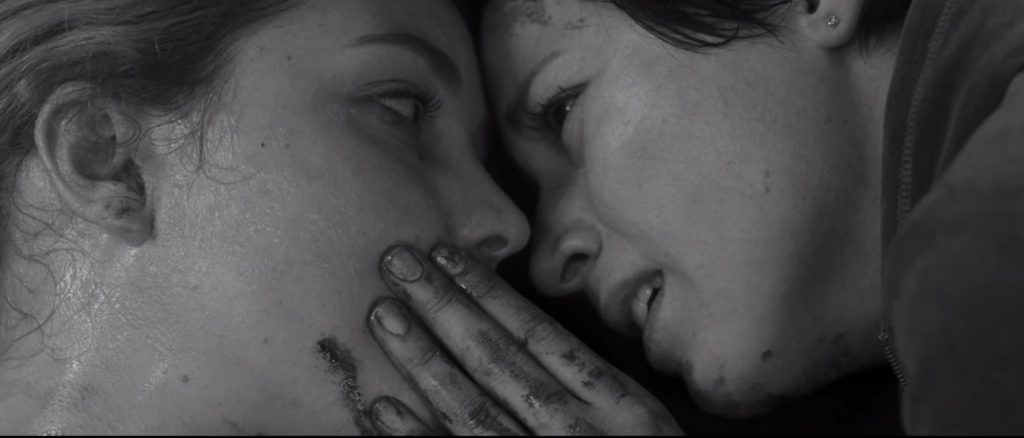For each movie in the “Denis 2049” series, Taylor and Sam will sit down and bounce some thoughts off each other, off-mic. Their brilliant minds will unleash many words. Make of them what you will. This time: “Enemy.”
Sam: The plot of this movie is … strange. To a level that I’m sure I don’t understand. But I’ll try to sum things up as best as I can in one sentence: A professor sees his doppelganger in a movie so he decides to find out who the actor is, only to find that said actor wants to steal his girlfriend from him and by doing so he leaves the aforementioned professor alone with a very pregnant, very confused, uh, spider.
What do you say? Is Gyllenhaal one person with a strong case of multiple personality disorder, or is this universe blessed with two Jakes?
Taylor: Hmm. We’ll talk about this extensively on the podcast, I’m sure, but I believe there can only be one Jake. The wife’s shocked reactions, the scar, the mom’s dialogue, the fact that there have been zero reported real-world instances of Jake Gyllenhaal being in two places at the same time, it all seems to obvious. Plus, the story of a man who can’t resist his philandering ways seems to make a lot more sense than the story of two men who look alike and happen to meet and have a weird tendency to wind up in situations involving blondes and spiders. It makes sense on both a storytelling/sensibility level and a “there is some serious spider symbolism in this movie” level.
That being said, I’m not super interested in litigating all the different theories and possibilities at this moment as much as I am in talking about the spiders. I have so many thoughts about the spiders.
What do you think they mean? Are they real? Imaginary? Subconscious? Has your life irrevocably been changed since watching “Enemy” because you can’t stop thinking about spiders?
Sam: I’m glad we’re talking about this. These spiders are most definitely imaginary, but that does not make them any less real. They are a regular part of my day now. Every empty room I walk into could be the one to have a Volkswagen-sized tarantula cowering in the corner. Every time I see a grouping of wires it looks like a spiderweb. I feel like I can’t even get into a normal car accident anymore without seeing a web in the broken glass.
Honestly, I barely understood this movie outside the “don’t cheat on your pregnant wife or you and your mistress will die in a car crash” subplot, so it would be irresponsible to speculate about what each spider in this movie could mean.
Ah, what the hell, let’s try on a couple:
- Spider Number One: The spider on the plate. At the beginning of the movie, Actor Gyllenhaal goes to the strangest speakeasy in Toronto, in which women step on spiders served on stainless-steel, beautifully-crafted serving dishes. If this isn’t symbolic of the existential threat posed by women taking over the culinary industry, I don’t know what is.
- Spider Number Two: The spider with long legs walking slowly over the city, careful not to step on any of the sharp buildings. This is clearly Denis’ ode to waking up in the middle of the night and gingerly walking to the bathroom when you can’t see what’s on the floor.
What spiders am I missing?
Taylor: You left out a hugely important spider.
Wife Spider.
But more on that in a second.
I think Spider Number One has more to do with spiders becoming a delicacy as a way for us to exert dominance over our own fears. Villeneuve clearly just wanted to show that if we are afraid of something, we should just eat it. As for Spider Number Two, you totally nailed it.
So let’s talk about Wife Spider.
Wife Spider is clearly meant to be taken literally. As many people know, spiders have been waging a war against humanity since the dawn of time. For instance, many people mistakenly believe rats helped to spread the Black Plague. It was actually spiders. Like the Illuminati, though, spiders are something people don’t often talk about.
Villeneuve, however, being a man of the people, knew it was to time to bring the truth into the light for the masses. The way this movie is meant to be read is simple: This is a movie about a spider spy trying to trap a nice man who just wants to live his life. The spider spy nearly draws him into its web enough to lull him to sleep. At the point of sleep, he would be summarily eliminated. (Important note: The spider was successful in eliminating one of the Jake Gyllenhaals.) However, he realizes something is wrong just in the nick of time.
As the screen prepares to cut to black, the spider shows its true self and Gyllenhaal stands to show he knows what’s what, prepared to fight.
It is my belief that as the credits roll, there is a fight to the death raging on between Gyllenhaal and the spider. The winner determines the fate of humanity.
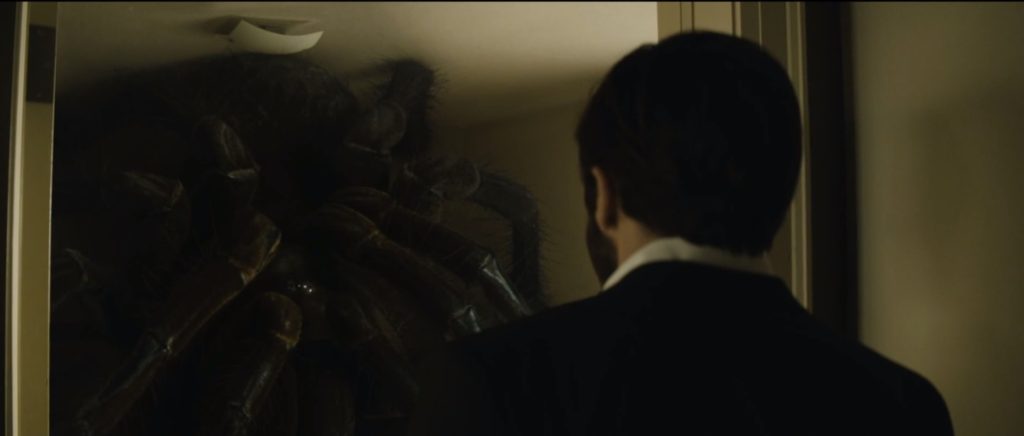
Sam: See, I resent this trope that spiders are the bad guys. It’s 2017, Taylor, turn off Fox News.
Look at “Charlotte’s Web,” “James and the Giant Peach,” “A Bug’s Life.” These movies and “Enemy” – and I would argue every movie in which a spider is trapped inside of a pregnant woman – are really about the imprisonment of literal spiders within the confines of our outdated moral constructs.
Gyllenhaal is an agent for change in human-spider relations. He dreams about them. He grimaces at women stepping on them. He saw his wife shed her pregnant exoskeleton and reveal herself as a big, beautiful spider, and he beamed with pride at her self-actualization. He is also a historian, and he doesn’t preach that vitriol about spiders causing the Black Plague. They suffered with us! If anything, they were the victims! If a human gets bit by a rat, it hurts. And maybe you get sick. If a spider gets bit by a rat, they instantly die.
The good news, Taylor, is that Gyllenhaal’s efforts pay off. His wife – the biggest spider in the apartment complex – reveals her true self and he basks in her glow. Sure, his literal twin had to die in a car accident for this to work out the way it did, but you know what?
Not a bad trade for spider peace.
Taylor: God damn it.
Sam: I win.
Denis 2049 Power Rankings after six:
- “Prisoners”
- “Enemy”
- “Polytechnique”
- “Incendies”
- “Aug. 32nd”
- “Maelstrom”
Next up: “Sicario.”
